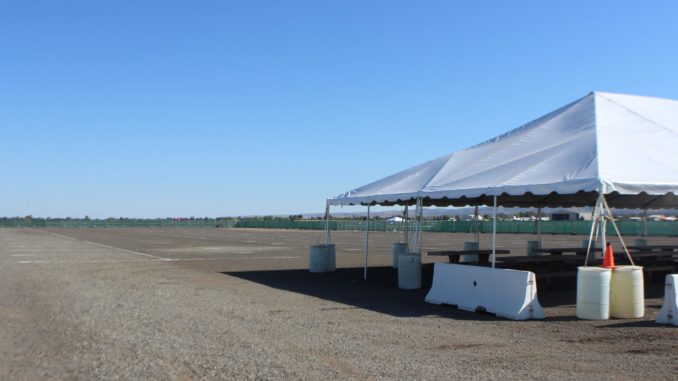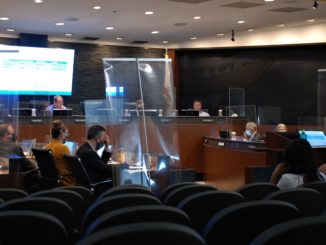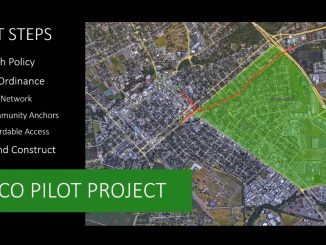
A federal judge granted a preliminary injunction to the plaintiffs in the ongoing Warren v. Chico civil case late Thursday (July 8), barring the city of Chico from enforcing ordinances aimed at the homeless population.
A temporary restraining order has guarded campers from being rousted since April 11; the injunction will uphold that protection until the case is ultimately resolved. In a memorandum and order document, in which he granted the injunction, Judge Morrison England Jr. was openly critical of the city’s airport resting site.
Quoting the city’s defense at a July 2 hearing, the judge wrote, “‘[a] shelter is a practically-available space for persons who are unhoused to go on a given day that would enable a city … to enforce its anticamping, sit/lie, and so forth ordinances.’ That definition does not pass the straight face test. Calling a plot of land a shelter does not make it so.”
Providing definitions of “shelter” according to the Merriam-Webster, Cambridge and Black’s Law dictionaries, he continued: “Under none of these definitions is the airport site a ‘shelter.’ It is an asphalt tarmac with no roof and no walls, no water and no electricity. It is an open space with what amounts to a large umbrella for some shade. It affords no real cover or protection to anyone.”
Under orders issued by England on July 2, the parties—eight unhoused individuals, represented by Legal Services of Northern California (LSNC), and the city of Chico’s legal team—will attempt to come to a settlement in meetings overseen by Magistrate Judge Kendall J. Newman. That process begins with an informal conference on Tuesday (July 13).
LSNC attorney Cory Turner told the CN&R he’s pleased with England’s ruling and that his team looks forward to negotiating.
“We’ve always been committed to engaging in good-faith settlement discussions with the city,” Turner said by phone. “After this ruling, we hope we can get the city to commit to some actual solutions. The airport [resting site] was soundly rejected by the judge, and it’s time to move forward and come up with a real plan.”
Part of that plan, Turner said, should be to “help people where they are right now”—namely the large encampments at Comanche Creek and Teichert Ponds.
“The city needs to do more to provide for the safety and health of all of its citizens, and they can start by doing the things they should have been doing this whole time,” he said, suggesting the city provide adequate bathrooms, hand-washing stations and dumpsters at those locations.
Turner noted there are currently three bathrooms at Comanche, two of which are paid for by Safe Space, a nonprofit that offers emergency shelter during winter months. The city provides two dumpsters but has denied Safe Space’s offer to pay for more, he said (which Safe Space confirmed to the CN&R). Teichert Ponds has no amenities, and Turner said the city has denied some efforts by private citizens and organizations who’ve offered to pay for more facilities at both sites.
Mayor Andrew Coolidge said he “wasn’t surprised” by the judge’s ruling and that he is optimistic a settlement can eventually be reached.
“We’re heading into negotiations with the magistrate and the other side, so I think that primarily is going to be where the decisions are made,” he said by phone.
Coolidge also offered some defense of the airport site, saying it’s meant to be temporary and that it’s “not at its fully realized potential.” He said the city is still looking for an organization to manage the site and that he’d like to see more services provided there.
“To criticize a project that’s not completely formulated or done, since we are still waiting for feedback from the other side and [from] the judge, isn’t necessarily a positive step,” he said. “I realize people in the community see a tarmac with a tent and some water and say, ‘This doesn’t suffice.’ I’d say it doesn’t suffice for me, either, but its not compete, and I think when it is complete, it should be to a level that the judge agrees with.”
As for sit/lie and other ordinances England criticized in the courtroom and his ruling, Coolidge said that “cleanups on those ordinances are prepped and ready to go. I think we can meet the judge’s desire on those with absolute certainty.”
The City Council will hold a special closed session meeting by Zoom on Monday (July 12) to discuss the judge’s ruling and other aspects of the lawsuit. Aside from settling, other possible outcomes include the city changing tack—by providing more robust shelter options and altering its existing ordinances—significantly enough to meet England’s approval, then asking the injunction be lifted. If a settlement isn’t reached the case could go to trial, a process that could potentially take years to resolve.




Be the first to comment